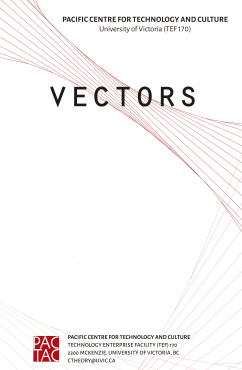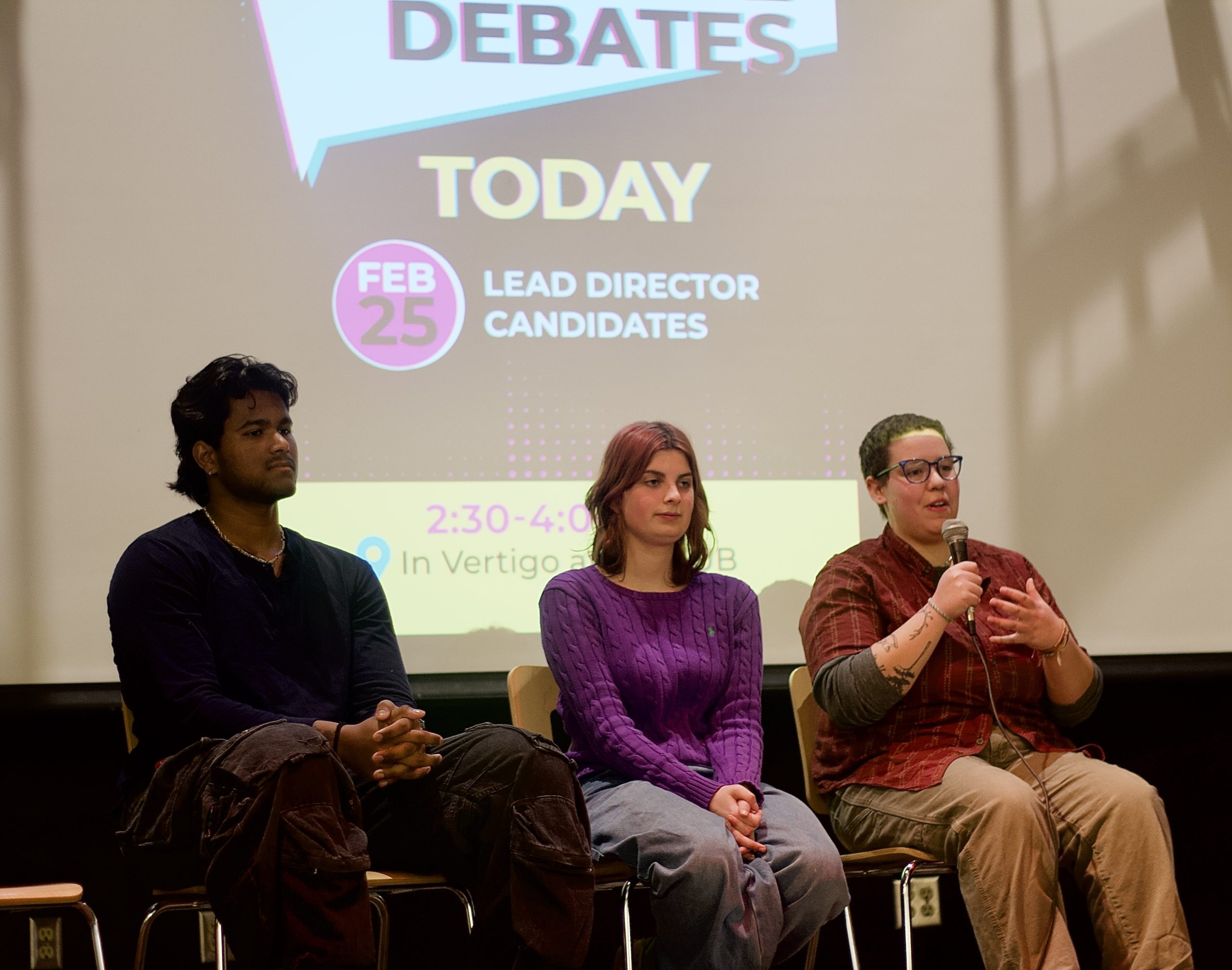Deep inside the bowels of the Technology Enterprise Facility — a building that looks eerily similar to the Baxter Building in Fantastic 4 — is a room filled with genius minds primed to tackle global problems.
The Vectors Symposium Series, a new initiative started by the Social Science deparment’s Pacific Centre for Technology and Culture (PACTAC), gathers researchers from different fields to talk about pressing issues that impact not just Vancouver Island but the world.

The Vectors Symposium involves academics from a wide variety of disciplines. Photo provided
“The attempt this year under the rubric of Vectors — these new trajectories of thought — is to bring together important focuses of discussion that draw together different communities within the university,” says Arthur Kroker, the Director of PACTAC. “Our notion was intended to celebrate the intellectual diversity of the UVic research community.”
PACTAC combines different methods of research that highlight the diversity of intelligent minds at UVic. Whether it’s publishing papers, offering digital resources, or videoing and releasing lectures to the public, PACTAC is a pioneering multifaceted research centre.
The inaugural lecture for the series occurred on Oct. 16, and featured the Associate Director of the Canadian Centre for Policy Alternatives Shannon Daub and UVic sociology professor William K. Carroll as the keynote speakers.
The lecture revolved around the idea of corporate power and fossil fuels as short term goals that inevitably harm the planet we live on. The goal — to give the audience a deeper understanding of fossil fuels and inspire debate — was clearly stated at the beginning of the talk.
“I was amazed at their research project, its extensiveness and care. I thought it was so thoroughly conceptualized and careful. It had this sense of intellectual care about it,” Kroker says.
After lecturing for an hour, the Vector Symposium then turned attention away from the speakers to the crowd. The audience had their chance to ask the lecturers questions, which then sparked a fierce debate over fossil fuels.
Kroker believes this discussion, especially between people of different research fields, is crucial to moving from talking about problems to actually acting upon them.
“It’s what interdisciplinary [research has] always been: it means people from different research backgrounds or intellectual backgrounds meeting . . . the thought begins to really [improve] itself [as it moves] from one discipline [to] another, and you actually begin to think differently.”
Although PACTAC says it mainly focuses on futuristic research, involving brains spanning across different fields is crucial to innovative problem-solving. And, with nine different faculties at UVic, ranging from Fine Arts to Science, there are many diverse minds on campus to involve.
“When it comes to UVic, I have always thought [of it] as a university of the future, because it brings futuristic research together,” says Kroker. “As a result of listening to Cody Poulton (the second Vectors Series lecturer) today, it really drew my attention to the importance of theatre, the history of puppetry, and contemporary issues of technology itself.”
Anyone on campus is welcome to attend the series and get a front row seat to Kroker — as Mr. Fantastic — facilitating the discussion between intellects across a vast range of faculties discussing ways to solve global problems.
The Vectors Symposium Series continues on Nov. 8, and the lecture will take place in the Technology Enterprise Facility room 170.







